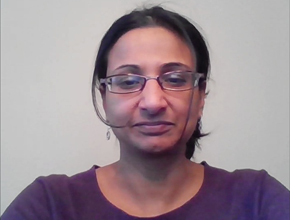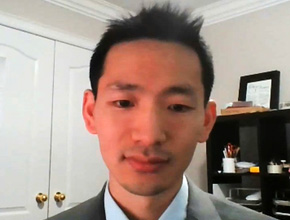Dr Nishma Singhal, associate professor in the Divisions of Infectious Diseases and General Internal Medicine at McMaster University, talks to Dr Roman Jaeschke about 2019 novel coronavirus (COVID-19; previously 2019-nCoV) and summarizes what we know so far, including recent definition changes, mortality, and available treatment options.
For the February 4 update, click here. For the January 28 update, click here.
Roman Jaeschke, MD, MSc: Good afternoon, welcome to another edition of McMaster Perspective. Once again, our guest is Doctor Nishma Singhal, prepared to talk to us about some updates on the coronavirus.
Doctor Singhal, we last talked 5 or 6 days ago. What are the updates? The floor is yours.
Nishma Singhal, MD: The situation is certainly evolving fairly rapidly. There’s been a number of changes over the last week. First and foremost, they now have an official new name for the virus and they’ve labeled it COVID-19, to stand for coronavirus disease and 2019.
On a more local basis, in Canada it’s really important for health-care workers to know that the definition for a possible case or a person under investigation has changed to include anybody that’s travelled within the last 14 days to anywhere in mainland China—previously it was just travel to Hubei province, now it’s all over mainland China—and is returning with symptoms; or someone who’s been in close contact with a known, confirmed, or suspected case.
Globally, the number of cases obviously continues to increase. Recently, there was an increase of almost 15,000 cases within a single day. I think that’s caused some concern, but it is important to know that this is mostly because, from a reporting standpoint, China has changed the case definition, or the way they’re reporting it. They’ve included probable cases, or cases that are diagnosed based on symptoms and imaging, not just laboratory-confirmed cases as they were reporting before.
In terms of laboratory-confirmed cases, there are about 45,000 cases, but when you include the probable cases, or those diagnosed based on clinical symptoms, there are about 63,000 cases now.
Otherwise, there hasn’t been a great deal of change. The case fatality rate has remained similar, but it is important to note it seems to be mostly in the cases coming from China. Outside of China, the case fatality rate has only been 3 deaths so far, out of approximately 500 or 600 cases, [so potentially it is] a little bit lower.
The situation continues to evolve, with only a few cases being documented outside of China and the majority still coming from China.
Roman Jaeschke: So there’s the change of the definition, change of the name, mortality probably stays around 2% or maybe a little less outside China, if I understand correctly. No specific treatment: treatment is supportive. No vaccine in the coming months at least.
Nishma Singhal: Yes, it’s surely going to take some time to develop a vaccine. And you’re right, today there are certainly no antivirals that have been shown to be effective. At the moment treatment is certainly supportive.
Roman Jaeschke: Most of the Canadian cases are actually on the cruise ships outside Canada, if I understand correctly. There are about 12 Canadians who tested positive on one of the cruise ships, but not much more in Canada.
Nishma Singhal: Exactly. They are still being quarantined off the coast of Japan. In Canada, there still remain only 7 cases so far.
Roman Jaeschke: Doctor Singhal, thank you very much for the update. I will request another one, maybe shortly after the weekend.
Nishma Singhal: Sounds good.
Roman Jaeschke: Thank you very much.
 English
English
 Español
Español
 українська
українська










